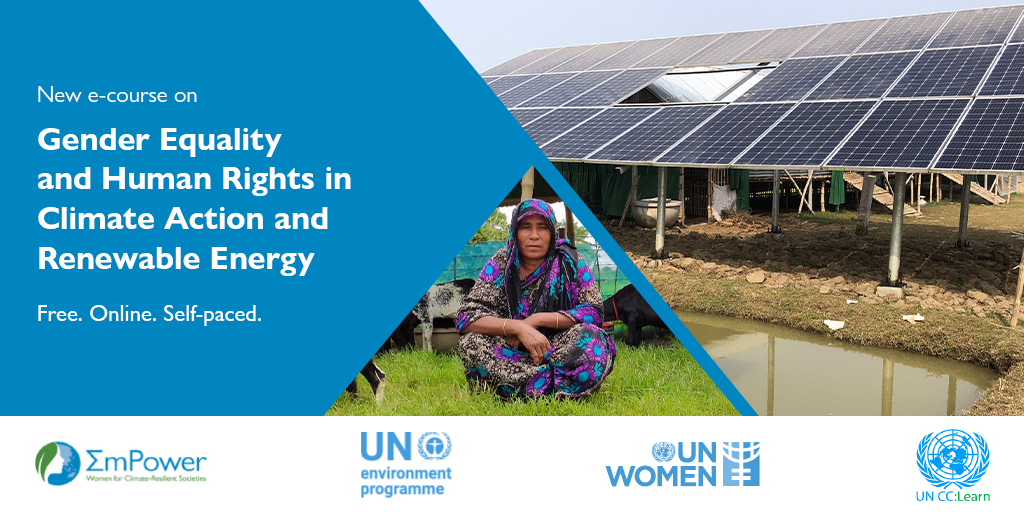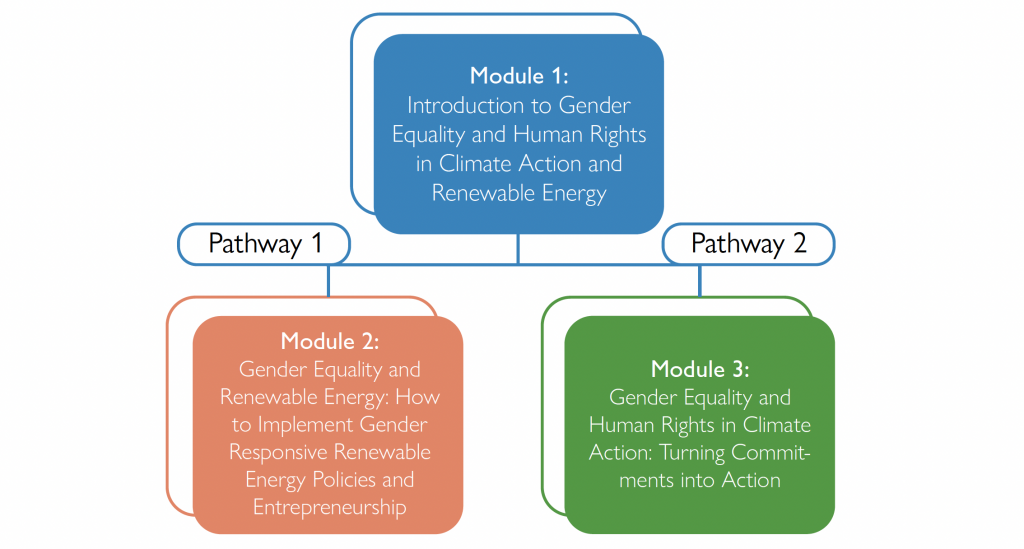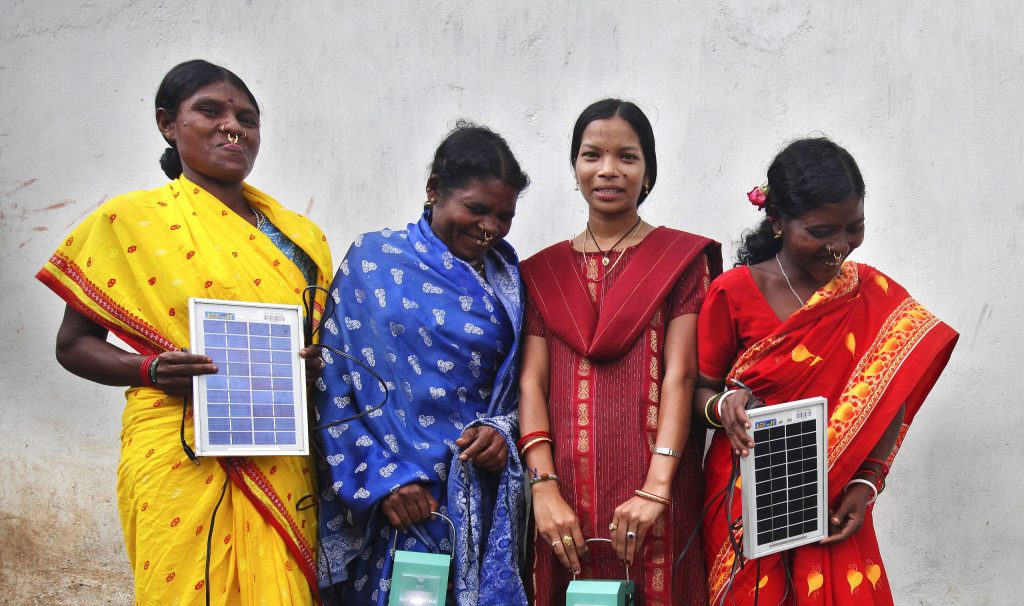Climate change effects are far-reaching and concern every aspect of society, from economic development to the realization of human rights. By multiplying existing threats, climate change disproportionally affects vulnerable groups – such as women, youth, the elderly, and persons with disabilities, reduce their ability to adapt and respond to its challenges, and enhances inequalities.

In this context, UN CC:Learn has partnered up with EmPower, an initiative led by UN Environment and UN Women with support from the Swedish International Development Cooperation Agency (SIDA), to develop the “Gender Equality and Human Rights in Climate Action and Renewable Energy” e-course. This new free, self-paced e-course aims to equip decision-makers with the tools and knowledge to integrate gender and human rights into climate policies and commitments while explaining how to develop inclusive climate mitigation and adaptation actions, with a particular focus on the renewable energy sector.
At the end of the course, participants will be able to:
- Describe the nexus between gender equality, human rights, renewable energy, and climate change
- Explain how a gender-responsive and human rights-based approach in climate action leads to economic, social, and environmental benefits
- Recognize international and sectoral commitments on gender equality, human rights, and climate change and their relationship with national priorities and policies
- Identify entry points for gender and human rights in renewable energy and climate policy and action
- Select and apply tools and approaches for the promotion of human rights-based and gender-responsive climate action
- Discuss targeted opportunities for women in climate change and renewable energy, with a particular focus on multi-stakeholder collaboration, renewable energy entrepreneurship, and access to finance.
The course consists of an introductory module and two specialized ones. The former introduces the interconnections between gender equality and human rights in climate action and renewable energy. Module 2 focuses on how to develop and implement gender-responsive renewable energy policies and programmes, with the goal of creating more opportunities for women to access and benefits from renewable energy. It pays particular attention to the promotion on women’s renewable energy entrepreneurship. Module 3 delves into how to develop and implement gender-responsive and human rights-inclusive climate change policies and frameworks at national level, including in Nationally Determined Contributions (NDCs) and National Adaptation Plans (NAPs).
Learners are invited to complete the first introductory module and then choose one of the two specialized modules according to the selected pathway. Pathway 1 is particularly intended for renewable energy experts and professionals of financial institutions. Pathway 2 is designed specifically for climate change and green economy policymakers. Participants can also opt to take all three modules.

Each module has four lessons, a final quiz and takes an estimated 2 hours to be completed. To succeed, participants must score 70% or higher within three attempts for each final quiz. Upon successful completion of each, participants will receive a badge. After completing the quizzes for the chosen pathway, participants will be able to download their certificate from the “Certification” section of the course’s webpage.
Disclaimer
Cover picture credit: Abbie Trayler-Smith/Panos Pictures

